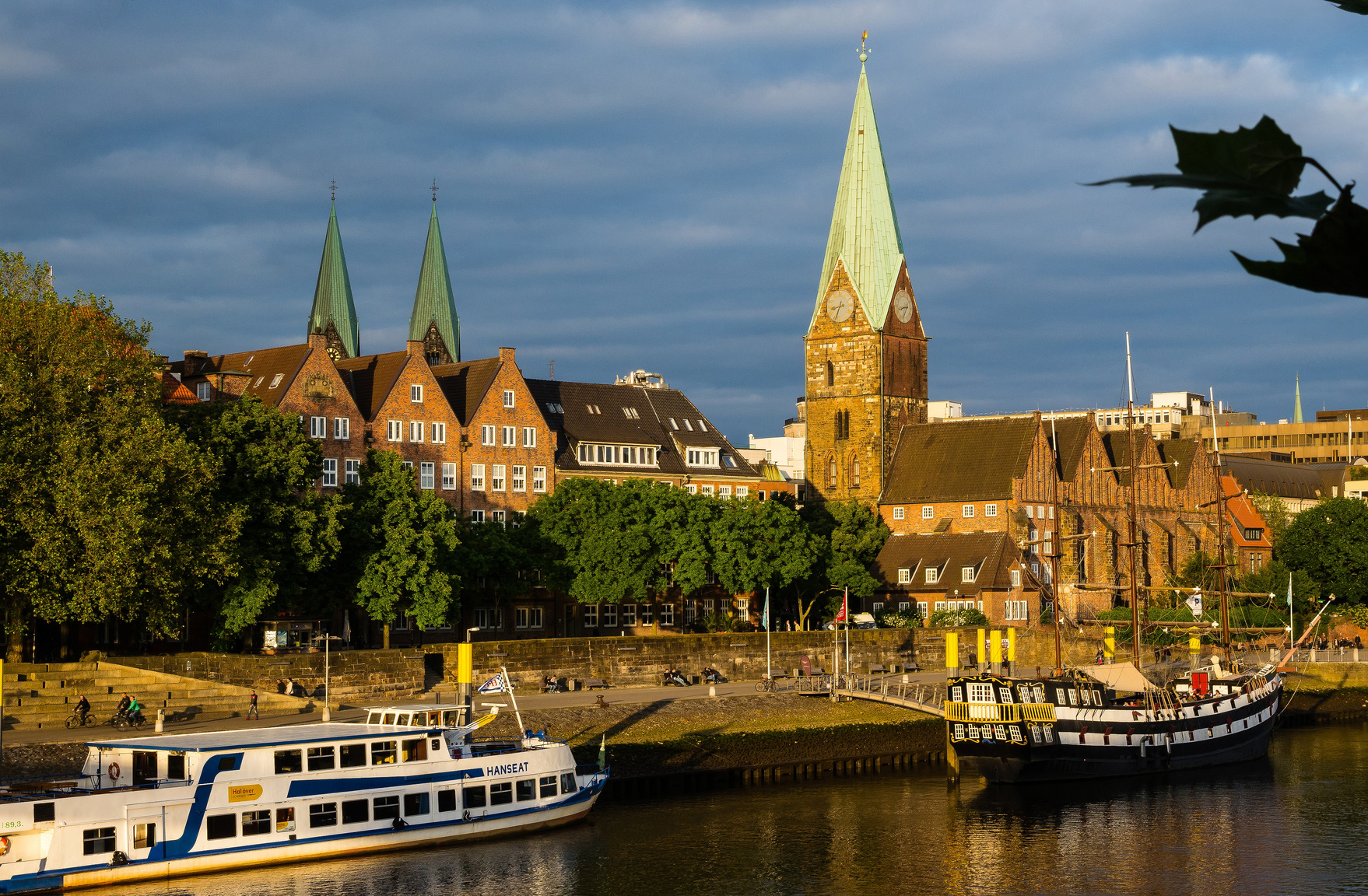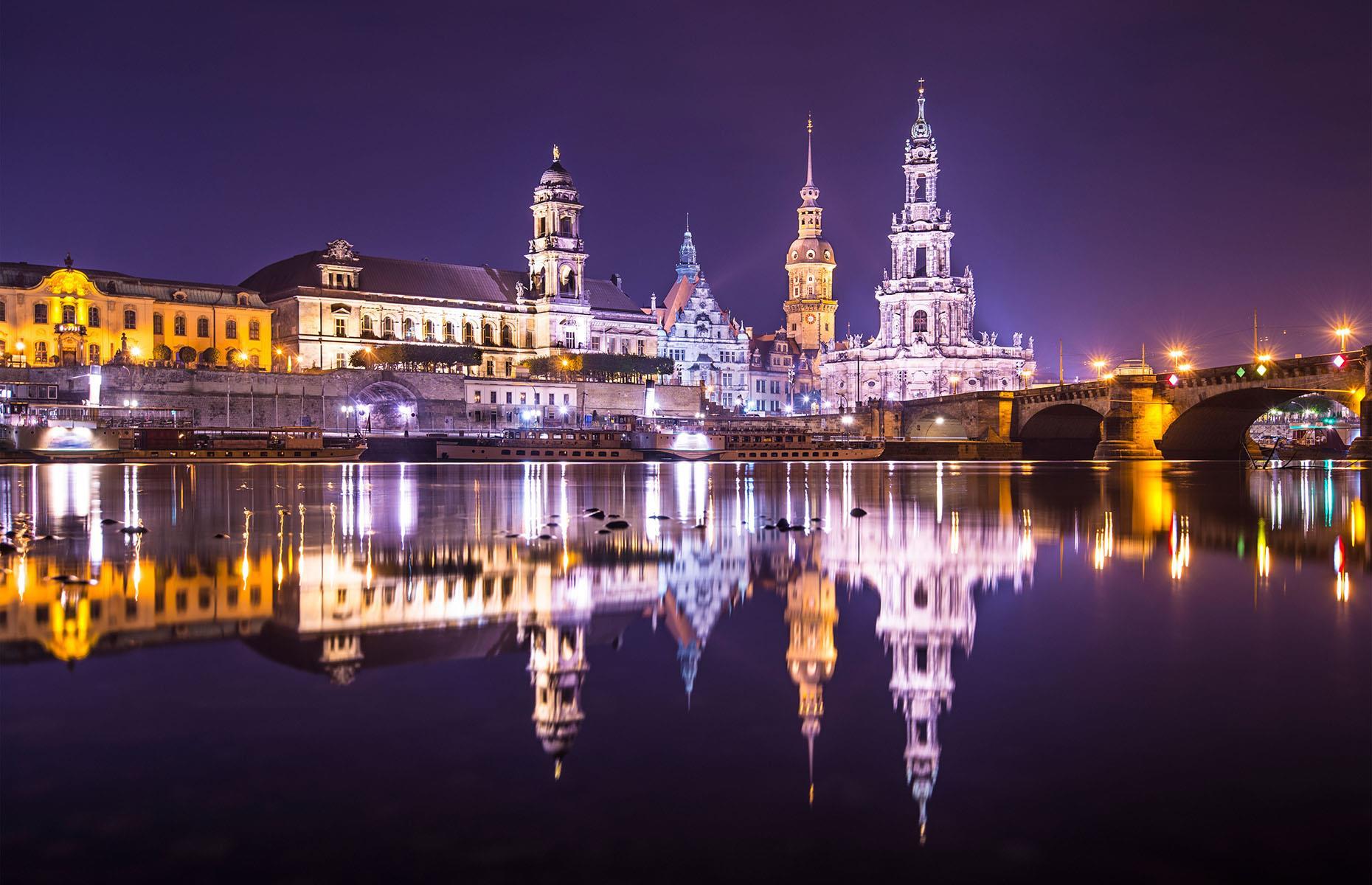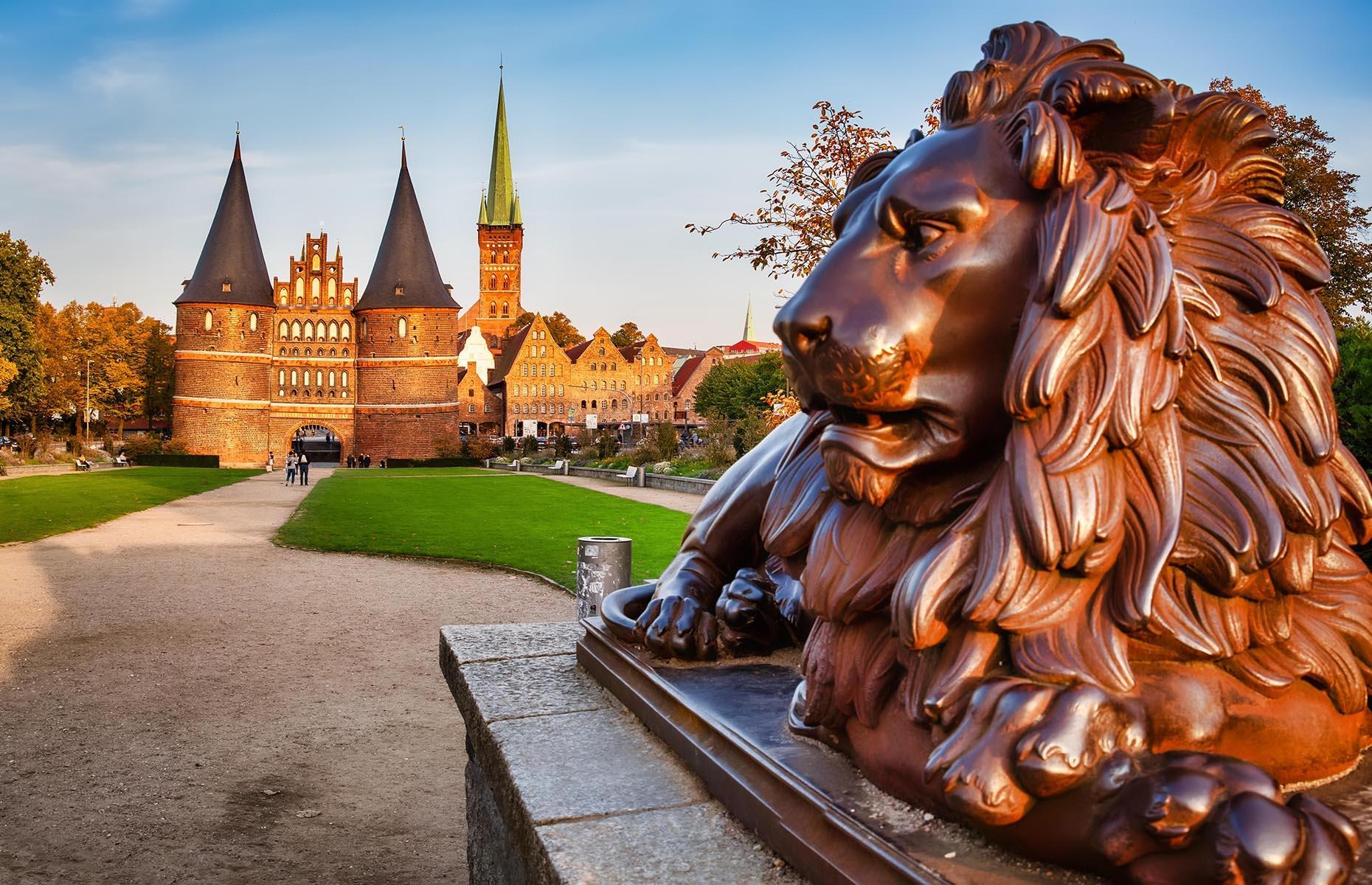Bremen, Germany: A City Steeped in History and Innovation
Related Articles: Bremen, Germany: A City Steeped in History and Innovation
Introduction
In this auspicious occasion, we are delighted to delve into the intriguing topic related to Bremen, Germany: A City Steeped in History and Innovation. Let’s weave interesting information and offer fresh perspectives to the readers.
Table of Content
Bremen, Germany: A City Steeped in History and Innovation

Bremen, a vibrant city nestled in northern Germany, offers a captivating blend of history, culture, and modernity. Situated on the Weser River, it boasts a rich maritime heritage, evident in its historic harbor, the "Bremerhaven," and the iconic "Weser Renaissance" architecture that defines its cityscape. Beyond its historical significance, Bremen stands as a thriving center for innovation and technology, attracting businesses and talent from across the globe. This article delves into the unique characteristics of Bremen, exploring its geographical location, historical significance, cultural attractions, economic landscape, and future prospects.
A City on the Map: Geographical Location and Significance
Bremen, the smallest of Germany’s eleven states, is located in the northwest of the country, bordering the North Sea and the state of Lower Saxony. The city itself is situated on the Weser River, which flows through its heart and connects it to the North Sea via the Bremerhaven harbor. This strategic location has played a pivotal role in shaping Bremen’s history and development.
Bremen’s geographical position has made it a vital trading hub for centuries. Its proximity to the North Sea facilitated maritime trade with countries across Europe and beyond. The city’s access to the Weser River enabled efficient transportation of goods and resources, further bolstering its economic prowess. Today, Bremen’s strategic location continues to be a crucial factor in its economic success, serving as a gateway for trade and transportation within Germany and beyond.
A Glimpse into the Past: Historical Significance
Bremen’s history stretches back over a millennium, its roots deeply intertwined with trade and maritime exploration. Founded in the 8th century, it quickly emerged as a major trading center, attracting merchants and traders from across Europe. Its strategic location on the Weser River and its access to the North Sea fueled its growth, making it a powerful force in the Hanseatic League, a powerful medieval trading network.
The city’s historical legacy is evident in its architectural landmarks. The "Bremer Rathaus," Bremen’s historic town hall, a masterpiece of Gothic architecture, stands as a testament to the city’s medieval grandeur. The "Roland," a towering statue of a knight, stands proudly in front of the town hall, serving as a symbol of Bremen’s independence and freedom. The "Schnoorviertel," a charming historic district, offers a glimpse into the city’s past, with its cobblestone streets, half-timbered houses, and quaint shops.
A City of Culture and Innovation: Exploring Bremen’s Attractions
Bremen’s vibrant cultural scene is a captivating blend of tradition and modernity. The city boasts numerous museums and art galleries, showcasing a diverse range of artistic expressions. The "Focke Museum," a renowned museum of local history and culture, provides a comprehensive overview of Bremen’s past, while the "Kunsthalle Bremen" houses an impressive collection of European paintings and sculptures.
Bremen is also known for its lively theater scene. The "Bremer Theater," one of the oldest and most prestigious theaters in Germany, hosts a wide range of productions, from classical plays to modern musicals. The city also boasts a thriving music scene, with numerous concert halls and clubs hosting international and local artists.
Beyond its cultural offerings, Bremen is a city at the forefront of innovation and technology. The city’s "Science Center Universum Bremen" is a popular attraction that showcases the wonders of science and technology in an interactive and engaging manner. Bremen is also home to numerous research institutions and universities, attracting talent from across the globe and contributing to its reputation as a hub for innovation.
A Thriving Economy: Bremen’s Economic Landscape
Bremen’s economic landscape is characterized by a diverse mix of industries, ranging from traditional sectors like shipbuilding and automotive manufacturing to modern fields like aerospace and renewable energy. The city’s port, "Bremerhaven," is a major hub for container shipping and logistics, playing a crucial role in Germany’s international trade.
Bremen is also home to a thriving automotive industry, with companies like Mercedes-Benz and Volkswagen having significant operations in the city. The aerospace industry is another key sector, with Airbus having a major manufacturing facility in Bremen. The city’s commitment to sustainability is evident in its growing renewable energy sector, with companies like Siemens and Enercon developing innovative technologies in wind energy and other renewable energy sources.
Looking Towards the Future: Bremen’s Prospects
Bremen is a city with a bright future, leveraging its rich history, cultural vibrancy, and economic strength to further enhance its position as a leading city in Germany and beyond. The city is actively investing in infrastructure, technology, and sustainability to attract businesses and talent, fostering a dynamic and innovative environment.
Bremen’s focus on green technology and sustainable development positions it as a leader in the transition to a low-carbon economy. The city’s commitment to research and development is attracting investment and creating opportunities for future growth. Bremen’s strategic location, its strong infrastructure, and its commitment to innovation are key factors in its future success.
FAQs about Bremen, Germany
Q: What is the best time to visit Bremen?
A: Bremen is a city that can be enjoyed year-round. The best time to visit depends on your interests. Spring and autumn offer pleasant weather for exploring the city and its surroundings. Summer months are ideal for enjoying outdoor activities and festivals, while winter offers a charming Christmas market experience.
Q: How do I get to Bremen?
A: Bremen is easily accessible by air, train, and car. Bremen Airport (BRE) offers connections to major European cities. The city is also well-connected to Germany’s extensive rail network, with frequent trains from major cities like Hamburg, Berlin, and Frankfurt.
Q: What are some of the best things to do in Bremen?
A: Bremen offers a wide range of attractions for visitors. Some of the must-see sights include the "Bremer Rathaus" (Town Hall), the "Roland" statue, the "Schnoorviertel" (historic district), the "Focke Museum," the "Kunsthalle Bremen," the "Science Center Universum Bremen," and the "Bremerhaven" harbor.
Q: What is the local currency in Bremen?
A: The official currency in Bremen, as in all of Germany, is the Euro (EUR).
Q: What is the language spoken in Bremen?
A: The official language in Bremen is German. However, English is widely spoken, especially in tourist areas and businesses.
Tips for Visiting Bremen
- Explore the historic district: Wander through the charming cobblestone streets of the "Schnoorviertel," admiring the half-timbered houses and quaint shops.
- Visit the "Bremer Rathaus": Admire the impressive architecture of Bremen’s historic town hall and the iconic "Roland" statue.
- Take a boat tour on the Weser River: Enjoy scenic views of the city from the water and learn about its maritime history.
- Experience the "Bremerhaven" harbor: Explore the bustling port and discover the city’s maritime heritage.
- Enjoy a traditional German meal: Indulge in local specialties like "Labskaus" (a traditional dish made with corned beef, potatoes, and beets) or "Bremer Knipp" (a dish made with pork, potatoes, and cabbage).
Conclusion
Bremen, a city rich in history, culture, and innovation, offers a captivating blend of tradition and modernity. From its historic harbor and charming old town to its thriving economic landscape and commitment to sustainability, Bremen is a city that has something to offer everyone. Its strategic location, its vibrant cultural scene, and its commitment to innovation position it as a city with a bright future, ready to embrace the challenges and opportunities of the 21st century. Whether you are a history buff, a culture enthusiast, or a tech-savvy traveler, Bremen is a city that will leave a lasting impression.







Closure
Thus, we hope this article has provided valuable insights into Bremen, Germany: A City Steeped in History and Innovation. We appreciate your attention to our article. See you in our next article!
